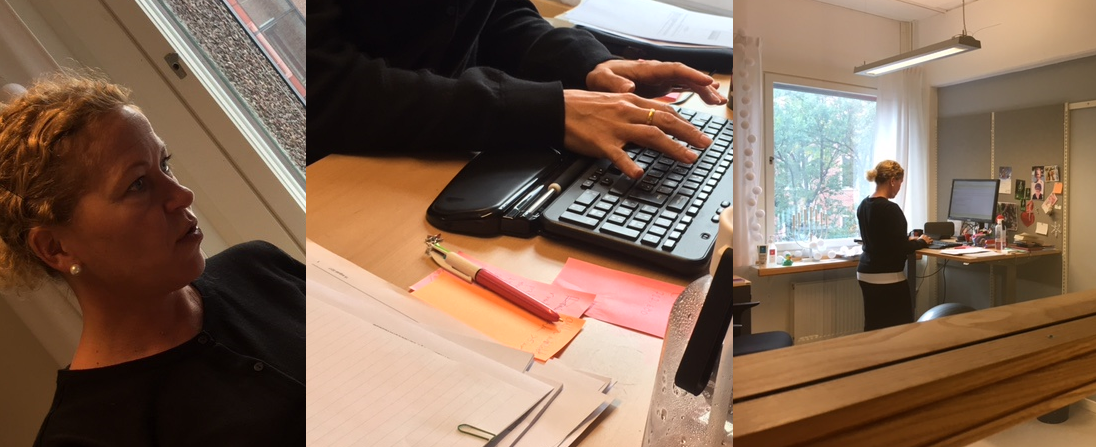
Meet Johanna Bäckström – founder of Career Service and head of a “fast running unit”
You have been Head of Unit for Student and Career Service for four years. What has been the highlights?
On a personal level, it has been to “dive into” everything that has to do with education. Previously I worked with administration related to research and postgraduate education.
On a more operational level I am proud of the fact that we have succeeded in our work to give career service access also to students. Contrary to the trend nationally, KI has strengthened and expanded the career support. We have also reached our goal of recruiting 200 fee-paying international students after the introduction of tuition fees in 2010.
In what way does your unit contribute to making KI an attractive university?
“Where should I start?” says Johanna, laughing. Our mission at the Student and Career Service is to inspire, guide and support students, doctoral students and researchers at Karolinska Institutet.
An attractive university offers career services. We have a responsibility to prepare students and researchers for the work life, whether it is careers outside or within academia, nationally or globally. The opportunities for getting international experiences at KI are great, and staff at my unit support both outgoing and incoming exchange students. KI has exchange agreements with more than 30 universities in over 40 countries. An international atmosphere is definitely attractive. Since KI strives to be a diverse and global university, we have to recruit talents both nationally and internationally, which is a challenge for our study advisors and communication officers who work with student recruitment. They constantly need to develop our digital channels and be in the front line to reach prospective students all over our globe. An attractive university is also an accessible and equal university and my unit has the responsibility to provide support for students with functional variations like dyslexia and ADHD.
You were very much involved in establishing career service at Karolinska Institutet. Tell us?
There were a series of investigations and events related to gender equality and career opportunities in academia, which eventually resulted in a formal assignment from the Board of Research at KI. I and a colleague were asked to set up a career support unit – Junior Faculty Office – the foundation of today’s Career Service. For inspiration and ideas we visited MIT in Boston, University of Pennsylvania and Rockefeller University in New York. When Junior Faculty was established in 2002, with Marie Wahren-Herlenius as the first chair of the steering committee (today pro Dean of Research), KI was actually the first and only university in Sweden and the Nordic region to offer career support for researchers. The word soon spread. We travelled a lot during the first years and shared our story.
In the early years, the service was financed with external funds, but as the Board of Research saw the progress and good results, they took over the responsibility. Gradually, career support has also come to include doctoral students (2007) and students (2015). Today Career Service is financially supported by all the three faculty boards at KI.
What’s is next on the TO-DO list for your unit?
Now, “we’re heading into a hectic fall”. The first thing we will do is to welcome all new students, both national and international. The largest proportion of incoming exchange students arrive when the autumn semester starts.
We will also start informing and recruiting new students for the intake in January and August 2018. This means update all study information, answer lots of questions via email and phone and work on our presence in digital channels. Our study advisors, communicators and student ambassadors will attend student recruitment fairs both nationally and internationally and this requires careful planning.
What’s the most fun of being the head of this unit?
The best part is all the wonderful employees … and that we “constantly have to run fast”. Since we work to a large extent with the youngest target group at the university (prospective students) we constantly need develop and pick up on new trends and needs.
What challenges do you see ahead?
Communication – it is the most important and at the same time the most difficult thing we do. We have to work to communicate more efficiently and develop our channels. The career blog is a great channel and, through this interview, I hope the knowledge of the support we offer at Student- and Career Services reaches further and beyond!

0 comments